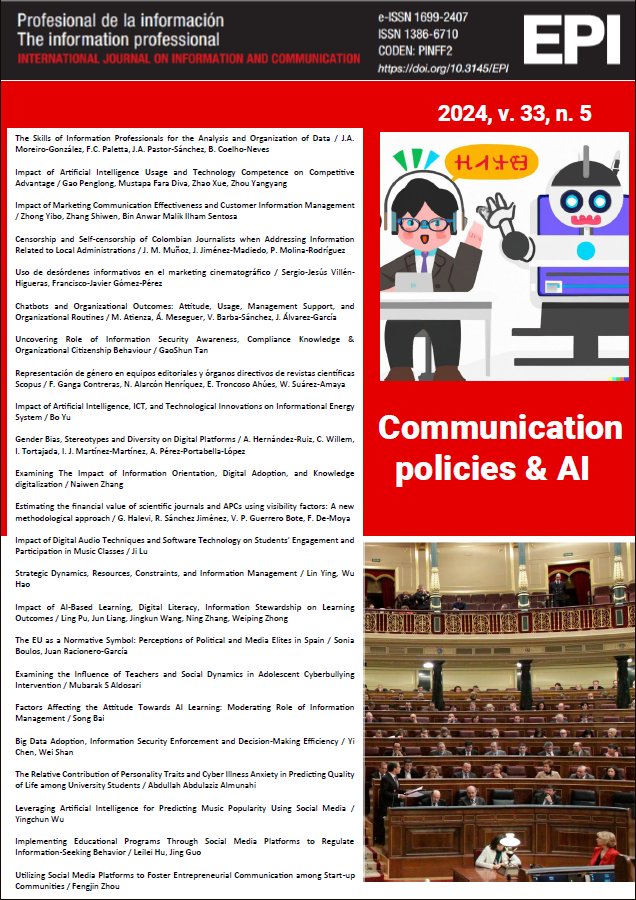Factors Affecting the Attitude Towards AI Learning: Moderating Role of Information Management
DOI:
https://doi.org/10.3145/epi.2024.ene.0518Palabras clave:
AI Learning, AI Self-efficacy, Digital Divide, Information Management, Cognitive Absorption.Resumen
Artificial intelligence integrated with technology has evolved into a domain offering both challenges and opportunities. Artificial intelligence (AI) has enhanced learning and aided human intelligence, but it is solely dependent upon several associated factors. By using the structural equation modeling techniques, this study examines the direct relationships between factors like digital divide, cognitive absorption, AI anxiety, AI self-efficacy, and AI learning, and the moderating role of information management. Additionally, this study also examined how all these factors influence the employees working in the service sector of China. A questionnaire was used to observe the respondents' feedback on a five-point Likert scale. The descriptive results revealed that responses have a mixed mean trend, while the standard deviation in the average scores was also less than 1. Further analysis showed that the average variance extracted for all of variables was above 0.50; the composite reliability was above 0.80 but items having less loadings were deleted, thus confirming the reliability of items. The final results show that the digital divide and information management promoted AI learning, whereas AI Anxiety impedes all types of learning among employees in the service sector. The moderating effect of information management also exists between AI self-efficacy and AI learning and between the digital divide and AI learning in this cohort of respondents.
Descargas
Descargas
Publicado
Cómo citar
Número
Sección
Licencia
Derechos de autor 2025 Profesional de la información

Esta obra está bajo una licencia internacional Creative Commons Atribución 4.0.
Condiciones de difusión de los artículos una vez son publicados
Los autores pueden publicitar libremente sus artículos en webs, redes sociales y repositorios
Deberán respetarse sin embargo, las siguientes condiciones:
- Solo deberá hacerse pública la versión editorial. Rogamos que no se publiquen preprints, postprints o pruebas de imprenta.
- Junto con esa copia ha de incluirse una mención específica de la publicación en la que ha aparecido el texto, añadiendo además un enlace clicable a la URL: http://revista.profesionaldelainformacion.com
La revista Profesional de la información ofrece los artículos en acceso abierto con una licencia Creative Commons BY.




